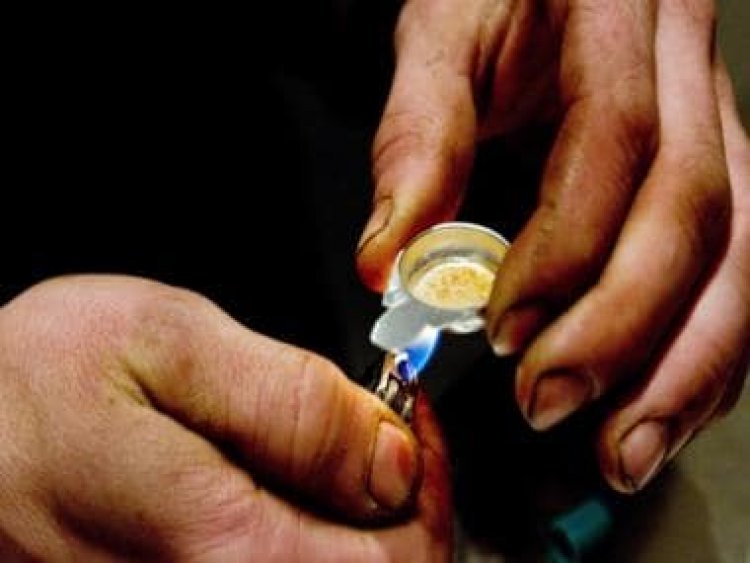Consumption of hard drugs is no longer a crime in THIS Canadian province
Consumption of hard drugs is no longer a crime in THIS Canadian province

Vancouver: A bold legislative change to address the thousands-strong opioid overdose crisis saw British Columbia, a Canadian province legalise the possession of tiny amounts of cocaine, heroin, fentanyl, and other hard narcotics on Tuesday.
Adults found in Vancouver in British Columbia with up to 2.5 grammes of these narcotics will receive information on how to attend addiction treatment programmes rather than being sent to jail or paying fines.
Additionally, police won’t seize their drugs.
However, during the three-year pilot initiative, criminal prosecution of hard drug sellers and traffickers will continue.
On the eve of the new regulations going into force, Carolyn Bennett, minister of addictions, stated at a press conference that “the situation has never been more critical.”
“The effects of this public health crisis have devastated communities across British Columbia and across Canada,” she said. When the measure was announced last May, she’d suggested it could be expanded to other provinces.
British Columbia is the epicenter of a crisis that has seen more than 10,000 overdose deaths since it declared a public health emergency in 2016. That represents about six people dying each day from toxic drug poisoning in the
province of five million people, topping Covid-19 deaths at the onset of the pandemic.
Nationwide the number of fatalities has surpassed 30,000.
Officials hope the change in policy will remove the stigma associated with drug use that keeps people from seeking help, and foster the notion that addiction is a health issue.
British Columbia’s chief public health officer Bonnie Henry said stigma and shame around using drugs “drives people to hide their addictions.”
“That means that many people are dying alone,” she said.
Kathryn Botchford, whose husband Jason died of a drug overdose in 2019, said she had no idea he’d even been using drugs.
“When I discovered how he died, I thought there must be a mistake. Jason doesn’t do drugs. We have three young kids and he knows the risks,” she said. “But I was wrong. He died alone using an illegal substance.”
Botchford said she initially kept his cause of death secret, even from their children. “His secret became my secret.”
But eventually, she said, “I realized that… I was unconsciously creating shame.”
Addictions treatment gap
Scott MacDonald, a doctor at a Vancouver clinic that was the first in North America to provide medical-grade heroin to patients, said under the new rules “people will be more inclined to seek vital substance use care and other health services they so often need.”
Police no longer confiscating their drugs, he told AFP, will reduce their stress, and “will make people’s lives easier.”
Canada has spent more than 800 million Canadian dollars (US$600 million) to try to stem the opioid crisis, including on addiction treatment, Naloxone supplies and opening 39 supervised drug consumption sites across Canada.
Bennett pointed to successes such as the more than 42,000 overdoses reversed at safe injection sites, and more than 209,000 individuals referred to health and social services in recent years.
But she acknowledged also “that access to treatment remains a gap” that is still being worked on.
The criminal code exemption granted to British Columbia for the pilot project makes the province only the second jurisdiction in North America to decriminalize hard drugs after the US state of Oregon did so in November 2020.
The state saw a dramatic drop in arrests that have freed up police and court resources, but Oregon’s initiative has faced pushback over the relatively few people (less than one percent) taking up offers of addiction help.
“Their effort to nudge people (off drugs) completely failed,” Stanford researcher Keith Humphreys told AFP.
He and others blamed a lack of access to addiction treatment services and a chaotic rollout of funding to support the initiative.
Isabelle Fortier of the Canadian group Moms Stop The Harm, whose daughter died of an overdose in 2019, said decriminalization is a good first step, but more are needed.
“It’s not going to solve the crisis,” she told AFP.
“But maybe it can help,” she said, “by preventing people from going down a slippery slope and being further stigmatized because they have a criminal record.”
(With agency inputs)
Read all the Latest News, Trending News, Cricket News, Bollywood News,
India News and Entertainment News here. Follow us on Facebook, Twitter and Instagram.
What's Your Reaction?



























































